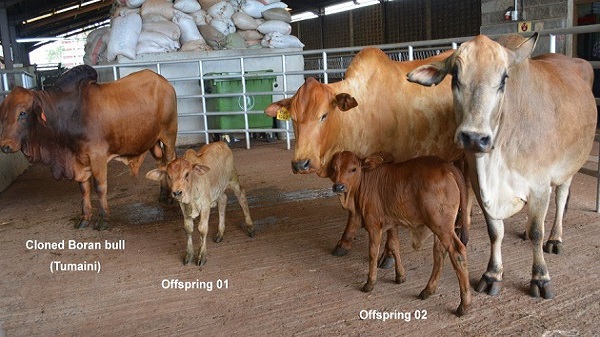
The Center for Tropical Livestock Genetics and Health, a joint venture between the University of Edinburgh’s Roslin Institute, Scotland’s Rural College (SRUC) and the International Livestock Research Institute (ILRI), will receive £4 million through funding by DFID for genetics and health research to aid sustainable livestock production in Africa.
(ILRI)–Research to improve the health and productivity of farmed animals in tropical climates has received a £4 million boost from the UK Government.
The investment from the Department for International Development (DFID) was announced by the Secretary of State for International Development, Penny Mordaunt, during a visit to the University of Edinburgh.
Funding will enable scientists in Scotland, Africa, Australia and the USA to tackle challenges faced by livestock farmers in sub-Saharan Africa.
It will support research in the Center for Tropical Livestock Genetics and Health—a joint venture between the University of Edinburgh’s Roslin Institute, Scotland’s Rural College (SRUC) and the International Livestock Research Institute (ILRI), the latter of which has major research facilities in Kenya and Ethiopia.
This latest investment builds on a £10m award from the Bill & Melinda Gates Foundation announced in 2015, supported by matched funding from the three partners.
Research at the center aims to improve the productivity of livestock breeds that are available to small-holder farmers in Africa and enhance the animals’ resilience and resistance to disease.
The center involves UK, Africa, Australia and USA-based scientists working together primarily at two major hubs, in Edinburgh and in Nairobi. It has five research strands focusing on dairy genomics, chicken genomics, the genetics of health, new breeding technologies and data management.
Professor Appolinaire Djikeng, director of the Center for Tropical Livestock Genetics and Health, said:
“The additional support from DFID is truly appreciated and is indeed a welcome addition to CTLGH resources, which will greatly increase our ability to support ongoing work and to attract other outstanding and highly committed scientists to tackle challenges of tropical animal agriculture and sustainable development.”
Read the complete story at ILRI
